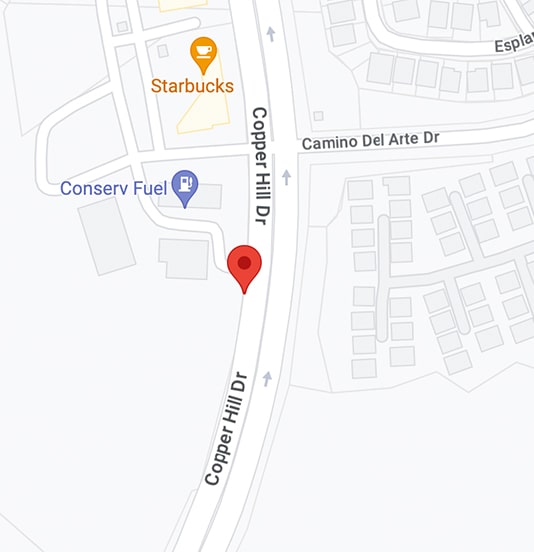An appealing smile is undoubtedly not the only benefit of having clean teeth. Keeping your teeth clean is paramount to your dental and overall health. Clean teeth mean improved breath and lower chances of developing gum diseases or tooth decay.
If you have plaque build-up below your gum line, regular cleanings performed by a dental hygienist during your routine dental appointments will not be enough. In that case, your dentist could recommend deep cleaning to restore your gum’s health. As the name suggests, deep cleaning is a more advanced level of teeth cleaning.
Think of it as a spa day for your entire mouth, which gives you megawatt confidence and a radiant smile and prevents dental and oral health issues.
Understanding What Deep Teeth Cleaning is
If your dentist recommends deep teeth cleaning, you do not have to fret because it is not an invasive procedure, and anesthesia is usually unnecessary. Deep cleaning is an advanced teeth cleaning procedure, also medically known as scaling and root planing (SRP) or non-surgical periodontal therapy.
It involves removing plaque and tartar buildup above and below the gumline to reduce gum inflammation and reverse the progression of gum disease. Plaque is the sticky and colorless film of bacteria that forms on the surface of teeth when the food you consume daily mixes with saliva.
Regular tooth brushing can help remove plaque, but sometimes, it can be challenging to eliminate all of it, mainly when it has formed between the spaces of your teeth. When left unchecked, plaque hardens into tartar, which increases your risk of developing periodontitis, a more severe stage of gum disease, by creating an environment for bacteria to thrive.
Gingivitis, the first stage of gum disease, is characterized by gum inflammation and bleeding. With proper oral care, it is typically reversible before advancing to more serious stages of gum disease. When you fail to seek treatment for gingivitis as soon as possible, it will advance to more serious stages of gum diseases, like periodontitis. While gum disease is reversible through proper oral care practices, periodontitis is irreversible without a dentist's intervention.
At this stage, the SRP procedure will be necessary to halt the progression of the disease, which can eventually lead to tooth loss. Unlike preventative dental cleanings your dentist performs during routine dental visits, during deep teeth cleaning, your dentist will focus on the areas of infection using unique dentistry technology and tools.
Signs That You Could Be an Excellent Candidate for Scaling and Root Planing (SRP) Procedure
Like most dental and oral health issues, deep teeth cleaning is not ideal for every patient. To determine if you're a suitable candidate for this procedure, consult your dentist.
In most cases, the onset of gum disease (gingivitis) will not cause any symptoms, making it challenging to know whether you require deep cleaning. However, some of the common warning signs or symptoms to look out for include the following:
- Gum recession
- Swollen, tender, or red gums
- Halitosis or long-lasting bad breath
- Loose permanent teeth
- Gums that bleed easily, especially when brushing your teeth
- Periodontal pockets between your teeth and gums
If you have noticed these signs, there is a high chance you have periodontitis or periodontal disease, meaning the bacteria has reached underneath your gums. At this point, a deep teeth cleaning procedure will be vital to remove the tartar buildup and prevent disease progression.
When left unchecked, the bacteria will worsen and damage the jawbone and the supportive tissues around your teeth, leading to tooth loss and other health issues because the bacteria can spread into your bloodstream.
How Your Dentist Will Determine Whether You Require Deep Teeth Cleaning
Your dentist will use various tools and methods to determine whether you are an excellent candidate for a deep teeth cleaning procedure, including the following:
-
A Clinical Exam
During a clinical exam, the dentist will check whether your gums are bleeding or tender. Another factor the dentist will consider during these exams is whether your tooth is loose by applying light pressure on the teeth in the affected region of your mouth.
-
Periodontal Probing
If a periodontal pocket forms between your gums and teeth, the dentist will use a dental probe to measure its depth. If the pocket exceeds 3mm, it may be a sign of periodontitis, and treatment should be considered to prevent further progression of the disease.
-
Taking of Digital X-rays
X-ray pictures of your mouth can help your dentist determine the bone density and shape of your jawbone near the affected tooth roots. If you have severe bone loss, your dentist will recommend deep cleaning.
Common Health Conditions Associated With Periodontitis
Unfortunately, untreated periodontitis can cause other health issues. Frequent dental visits are vital to detect these issues before they become problematic. During routine dental visits, your dentist will thoroughly examine your oral and dental health to see whether you are at risk of gum disease.
Since this disease is often asymptomatic at its onset, your dentist could use a dental probe to measure the depth of your gingival pockets during your routine visits. If your mouth is healthy, your pockets should be between 1 and 3 millimeters. That means if your pocket's depth exceeds 3 millimeters, that could be a sign of gum disease.
In a nutshell, here is a list of common health conditions that you could experience due to untreated periodontal disease:
- Infertility
- Erectile dysfunction
- Cardiovascular diseases
- Uncontrolled blood sugar levels for diabetic people
- Preeclampsia
Your smile's appearance and preventing bad breath, cavities, and gum disease are not the only reasons you should care for your dental and oral health. Generally speaking, your oral health is vital and can compromise your overall body wellness.
Tips on How to Prepare for a Deep Teeth Cleaning Procedure
The dentist you choose will likely schedule your appointment in the afternoon or early in the morning. However, early mornings are preferred because your energy levels are high in the mornings, and your dental hygienist will also require some time with you before the dentist begins the procedure.
Also, remember that the deep teeth cleaning procedure will require two dental appointments. During each visit, a dental hygienist will clean half of your mouth. Wearing light clothing is advisable during your deep cleaning appointment. If you are nervous about the treatment, you should consider carrying your earbuds and listening to your favorite music while your dentist does what he/she does best.
Discussing your nervousness and dental anxiety issues with your dentist is also brilliant because he/she probably has had patients like you in the past and understands the remedy for that problem. For example, your dentist could use nitrous oxide to minimize discomfort during the procedure.
If you are employed or have classes to attend, consider making arrangements with your employer or teacher to give you at least one day off to recuperate. When local anesthesia is necessary, you should expect to experience some slight soreness in the injection area or site, mainly around your cheeks.
Having some painkillers like ibuprofen handy could also help reduce any possible discomfort after the treatment, but you should take them as directed by your dentist.
What to Expect During Your Deep Teeth Cleaning Procedure
Deep teeth cleaning, or SRP procedure, will occur in your dentist's office, but the treatment could take longer than your usual routine dental cleaning appointments. Here is a step-by-step guide on what to anticipate during this procedure:
-
Application of Local Anesthesia or Sedatives
While some patients do not require anesthesia or numbing medication, others prefer that a dentist perform this procedure under local anesthesia. If you have teeth sensitivity issues, your dentist could recommend local anesthesia to numb the skin around the affected area and prevent sensitivity during the procedure.
If you have dental anxiety, your dentist will use nitrous oxide, also known as laughing gas, to ease the anxiety and assist you in relaxing during the procedure. The nitrous oxide will begin working immediately and is reversible. That means you can ride your bike or drive home after the procedure.
-
Teeth Scaling and Root Planing
Once your teeth and gums become anesthetized, your dentist will begin the deep cleaning procedure, which involves scaling and root planing. During the dental scaling procedure, your dentist will use a unique handheld tool known as a dental scaler to manually scrape away tartar buildup on the surface of your teeth and below your gum line.
The dentist could also use a unique ultrasonic instrument with a vibrating tip and water spray to remove and wash away tartar buildup on the surface of your teeth. On the other hand, root planing is a procedure your dentist uses to smooth out rough edges on the surface of your tooth and its roots, where bacteria hide or attach.
This procedure aims to reduce the chance of plaque or tartar developing on teeth and below the gumline. The root planing procedure also promotes healing and enables the gums to reattach to the teeth, providing a seal against any possible penetration of bacteria and food particles that could cause reinfection.
-
Application of Antibiotics
After the deep cleaning procedure, an antibacterial rinse of the periodontal pockets could be necessary to kill and eliminate any remaining bacteria. The antibiotics also help accelerate the healing process after the SRP procedure.
-
Follow-Up Teeth Cleaning Appointments
Once your dentist completes your two deep teeth cleaning appointments, he/she will require you to schedule follow-up appointments after about two to four weeks to monitor your healing process. During the follow-up appointment, your dentist will re-measure your periodontal pockets to determine whether their depth is reducing.
If the depth of your periodontal pockets has reduced, that is good progress on your healing journey because it means your gums have reattached to your tooth surface.
-
Referral to Ideal Specialist
If your periodontal disease is advanced, your dentist may refer you to a periodontist for specialized care, although scaling and root planing may still be effective in many cases. More comprehensive treatment, like gum surgery, could be necessary for severe cases.
Examples of gum surgery procedures your periodontist could recommend if your gum disease is severe include gum flap surgery. During this procedure, your periodontist will retract the affected gum tissues to easily access the roots of the affected tooth and thoroughly clean the severely affected regions of your gums.
After Deep Teeth Cleaning Care Tips
Following the tips below after your deep teeth cleaning procedure can accelerate the healing process and minimize any chances of developing gum disease in the future:
- Avoid drinking and eating within the first hour after your treatment to allow anesthesia to wear off
- Avoid flossing and brushing around the treated site within the first twenty-four (24) after the treatment to facilitate healing
- Use medicated mouthwash and take any antibiotic medication as prescribed by your dentist.
- Avoid smoking and chewing tobacco-related products because it can slow down your healing process or worsen your oral and dental health
- Rinse your mouth at least once daily using salted water to promote healing and reduce swelling
- Use a soft-bristled toothbrush to brush your teeth within the first week
The home-based care tips your dentist recommends after deep teeth cleaning could vary depending on your situation. You should notice an improvement in your gums' health within the first few days after the deep teeth cleaning procedure.
Benefits of Deep Teeth Cleaning
While you will likely experience some aching and minor discomfort after the procedure, deep dental cleaning is a worthwhile treatment. Below are some of the notable benefits of this treatment:
- Improved breathe odor
- Reduced oral pain
- It helps stop bone loss
- Decreased tooth sensitivity
- Decreased bleeding whenever you are brushing or flossing your teeth
- Aesthetically appealing gums and teeth
- More secure and well-anchored teeth
While periodontal disease is treatable, you can avoid the issue by practicing oral and dental hygiene and visiting your dentist often (at least every six months or twice a year). During your routine dental exams and cleanings, your dentist will notice signs of gum disease and offer appropriate treatment before it progresses to the advanced stages that could necessitate deep teeth cleaning.
Find a Credible Valencia Dentist Near Me
If you have a scheduled deep cleaning procedure, you can feel more at ease knowing that local anesthesia and modern dental equipment will help minimize discomfort during the treatment. Your dentist will use anesthesia to numb your skin around the affected region and modern dentistry tools to perform the procedure, meaning discomfort is not an issue to fret about.
If you have more questions about deep teeth cleaning or are worried about what to expect during treatment, our dentists at Valencia Dentist would gladly help. We invite you to call us at 661-775-7717 to schedule your initial consultation with us, wherever you are in Santa Clarita.




